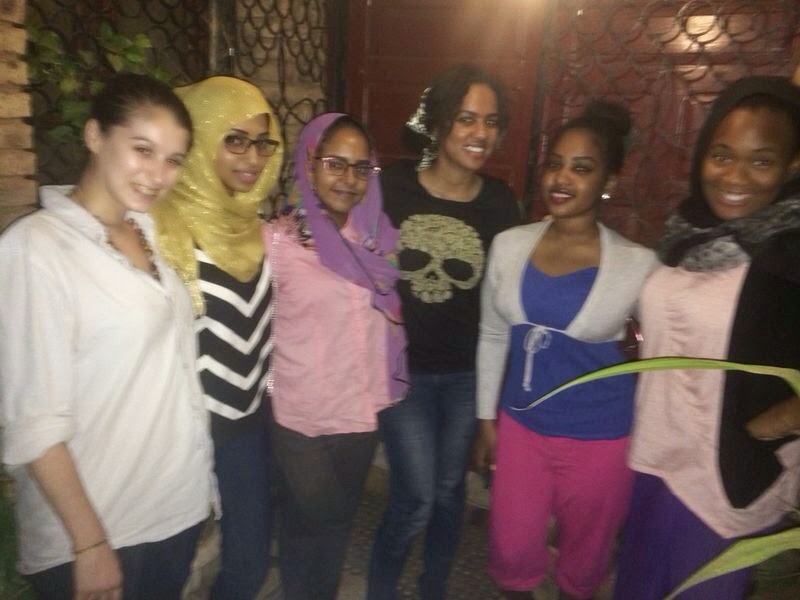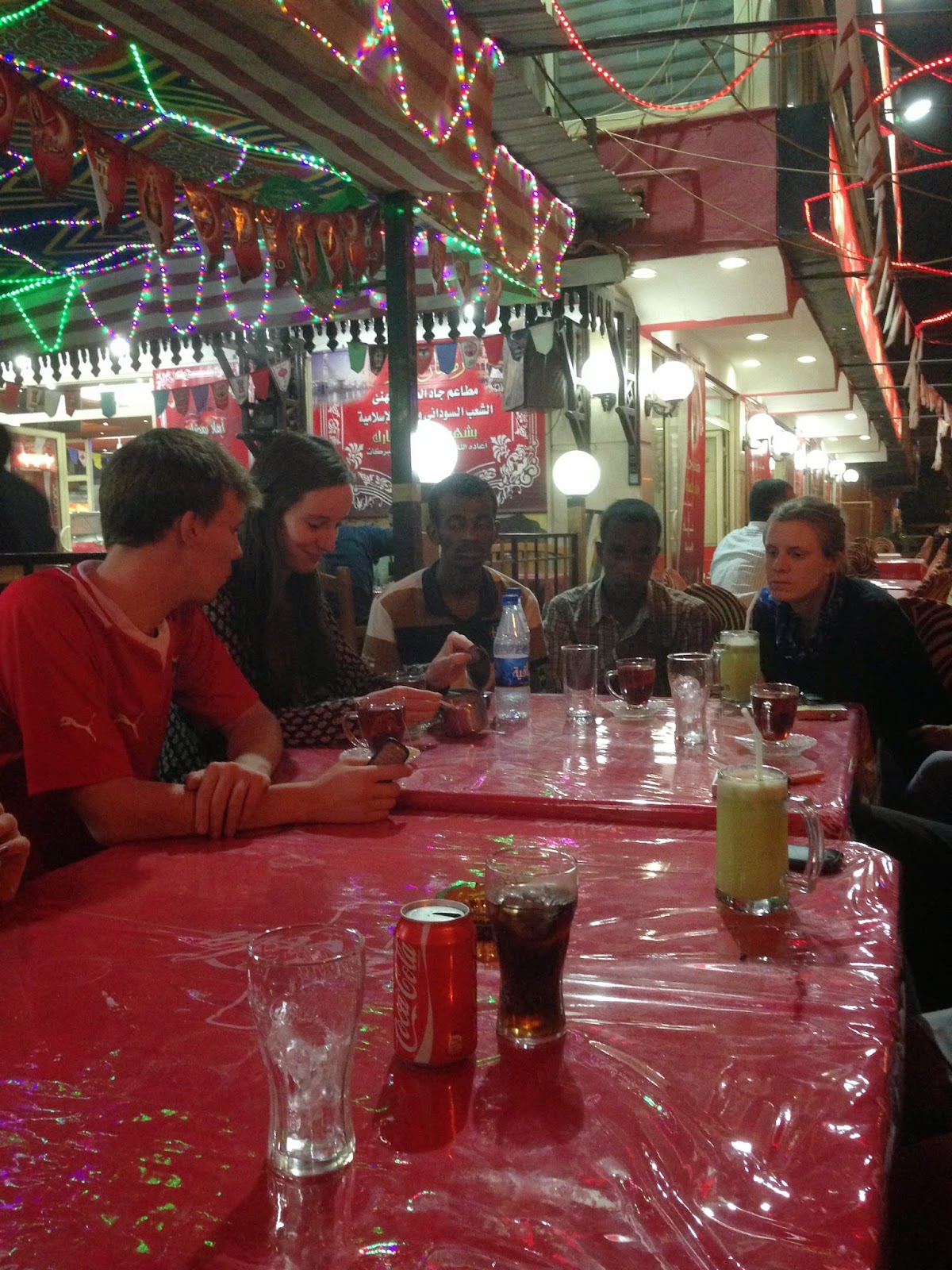Based on my brief Ramadan experience
 |
| Obligatory waiting in traffic amjad selfie |
I wanted to write at least one more post about what my life
has been like since Ramadan started because I thought it’d make for an
interesting post. Ramadan is a holy month in Islam where people fast during the
day time for 30 days. Fasting is from sunrise to sunset; no food or drink, not
even water. This year’s started off with some major confusion surrounding when
it actually started. You see the Islamic calendar relates with the moon’s cycle.
So for weeks I’ve been asking when Ramadan started and gotten different
answers. I must have received no less than 5 contradicting messages from people
the Saturday before it started. “Google says..” quoted one non-Muslim friend.
Well Google was wrong.
Let’s look at some other Ramadan in Sudan myths and misconceptions.
And by myths I mainly mean the wrong assumptions I made about Ramadan before I
knew better.
Everyone is fasting.
WRONG For starters children and elderly don’t fast. Some families have kids “practice”
a day or two as they get older. If you are traveling or sick you also don’t
have to fast. (Shouldn’t this have ended the World Cup Muslim players fasting
controversy?) When girls are on their
periods they don’t fast. Although they have to “make-up” days throughout the
year before the next Ramadan (same for those who skipped due to traveling). In
the end, fasting or not fasting is a personal decision.
Everything shuts down
during Ramadan. WRONG I think I got this idea from the fact that on Fridays
everything closes for people to go Mosque. I told some friends that I was
planning on doing a big shopping trip before Ramadan started to hoard food.
They looked at me and started laughing and then told me stores would still be
open. While some stuff is closed, a lot more is open than I thought would be.
Groceries and little shops all stay open. Schools running classes (like mine)
stay open. We were really surprised to still have good attendance this past
week. Restaurants open at night. The buses still run. Life continues as normal.
If you have a job you still have to go to work.
The hardest part
about fasting is not being able to drink water. WRONG Well, maybe for some
it is the hardest part, but a general survey of complaints has yielded many
more about smokers being antsy wanting a cigarette or coffee-drinkers with
headaches from being unable to get their caffeine-fix.
People lose a lot of
weight during Ramadan. WRONG Well again, I don’t have scientific evidence
on this but I recently saw this article.
Overeating is apparently a big problem. Some people try to take 4 meals in the
span from 7:30pm-4am. I can’t imagine working out or running in Sudan when I
could drink water (although there are gyms and clubs which residents frequent)
but its safe to say during Ramadan the physical activity is even more limited.
It’s going to be
really challenging to feed myself during Ramadan. WRONG Since Ramadan has
started I think it’s actually the best
I’ve eaten in the last 4 months. Since our usual cafeteria and fast food lunch
places aren’t open and due to general interest, I’ve really taken up cooking a
lot more meals. And no I don’t mean Ramen noodles. I’ve made some great lentil
and chickpea soups and salads
and then used the leftovers to make my own falafel (sans food processor BTW). I
literally whipped up dinner for my entire household two nights last week. WHO
AM I? The second part of eating awesome during Ramadan has been the amazing
Iftar dinner’s I’ve been invited to. Iftar is the meal around 7:30 here that
breaks the fast. There are some special foods eaten for Ramadan and the meal is
always taken on mats on the floor. Dates and ful ( slow cooked fava beans) are
a must. I think the most important
ingredient in an Iftar “breakfast” is the whole family or community coming
together. Many families eat outside in the streets. The purpose of this is so
if any
traveler is passing during the time fast breaks they can be invited to
join.
Above and below are examples of Iftar meals. They both include some Sudanese signature items like dates and ful. Above also includes moola and garassa which I've discussed previously, salad, and powder sugar covered zalabiya for dessert. Below in addition to ful and dates shows some yogurt dip, temiyah, salad, rice, and french fries.
After dinner we got to play with a puppy, so clearly that was the highlight of the evening.











